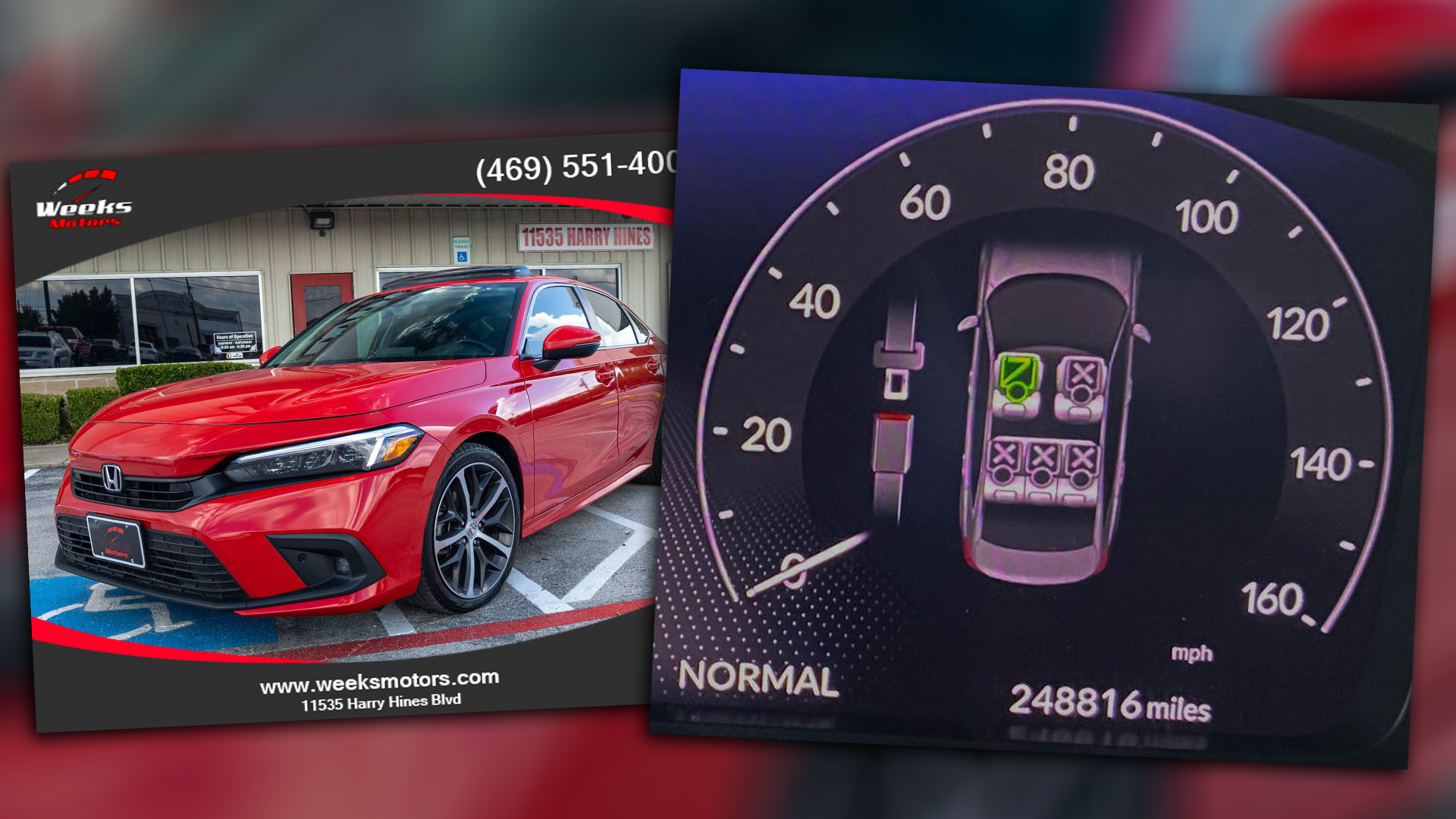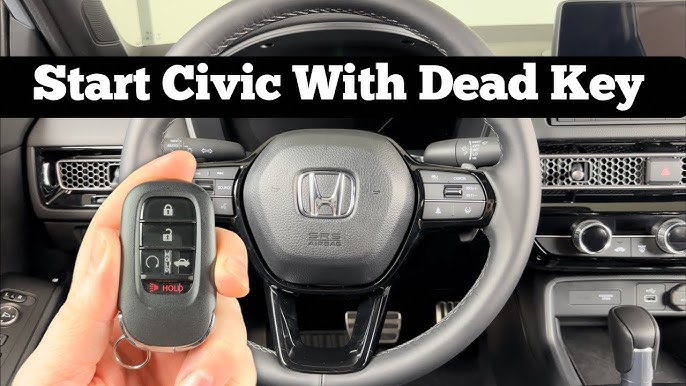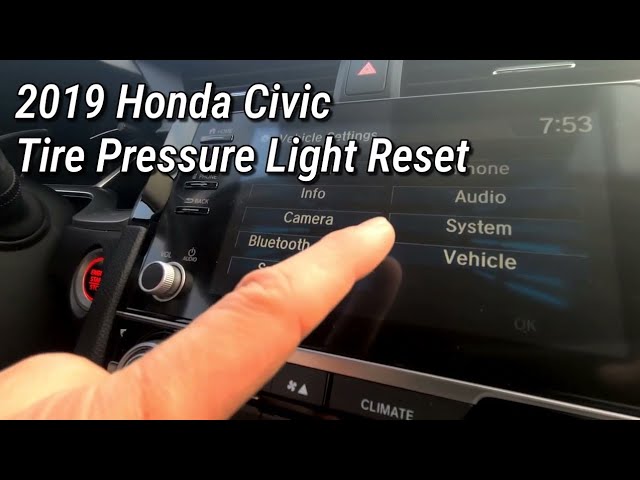As an Amazon Associate, I earn from qualifying purchases
Are you wondering how many miles your Honda Civic can handle before it’s considered “high mileage”? Knowing this can help you make smarter decisions about maintenance, selling, or buying a used Civic.
You want to avoid unexpected breakdowns and keep your car running smoothly for as long as possible. You’ll discover what really counts as high mileage for a Honda Civic and what signs to watch for. Keep reading to protect your investment and get the most out of your ride.

Credit: www.reddit.com
Honda Civic Mileage Benchmarks
The Honda Civic is known for its durability and fuel efficiency. Many drivers want to know what counts as high mileage for this popular car. Understanding mileage benchmarks helps you track your vehicle’s condition and plan maintenance. It also gives a clear idea of the car’s lifespan and when it may need major repairs.
Different models and years may vary, but some common mileage milestones apply to most Honda Civics. These numbers show how long the car can last and what to expect as it ages. Knowing these benchmarks helps you keep your Civic running smoothly for years.
Average Lifespan Of A Honda Civic
Most Honda Civics last around 200,000 miles with proper care. Some owners report their cars reaching 250,000 miles or more. Regular oil changes and maintenance help extend the car’s life. A well-maintained Civic can easily serve you for 15 years or longer.
High Mileage Milestones
Crossing 100,000 miles is a major milestone for a Honda Civic. At this point, some parts may start to wear out. Reaching 150,000 miles means the car has been driven a lot but can still run well. Hitting 200,000 miles or more shows the Civic’s strong build quality. High mileage means more frequent checks and repairs.
Factors Affecting Mileage
Driving habits play a big role in how many miles a Civic lasts. Smooth acceleration and gentle braking reduce wear. Frequent short trips can cause more engine wear than long highway drives. Weather and road conditions also affect the car’s lifespan. Timely maintenance and quality parts keep the mileage high.
Signs Of High Mileage Wear
High mileage can affect a Honda Civic in many ways. Signs of wear appear as the car ages and covers more miles. These signs help owners understand when parts need attention or replacement. Recognizing these signs early can prevent bigger problems later.
Engine Performance Changes
The engine may lose power over time. It might take longer to start or run roughly. Fuel efficiency often drops with high mileage. Strange noises like knocking or ticking can appear. These changes point to engine wear and tear.
Transmission And Drivetrain Issues
Shifting gears can become harder or less smooth. The car might hesitate or jerk during acceleration. Leaks under the car could indicate transmission problems. High mileage causes parts inside the transmission to wear out. Drivetrain noises or vibrations may also develop.
Suspension And Brake Wear
The ride may feel less smooth or bouncy. Steering might feel loose or less responsive. Brake pads and rotors wear down and need replacing. Squeaking or grinding sounds during braking are warning signs. Suspension parts like shocks and struts weaken over time.
Maintenance Tips For Longevity
Maintaining a Honda Civic for many miles needs careful attention. Proper care helps the car run smoothly for years. Small steps can prevent big problems later. Follow simple tips to keep your Civic healthy and reliable.
Regular check-ups and timely replacements keep the engine and parts in good shape. This saves money and avoids unexpected breakdowns. Focus on key areas that wear out faster with high mileage.
Regular Oil And Fluid Changes
Change the oil every 3,000 to 5,000 miles. Clean oil protects the engine from damage. Check other fluids like coolant, brake, and transmission fluid. These keep the car parts working well and prevent overheating or wear.
Timing Belt And Chain Care
The timing belt or chain controls engine timing. Replace the timing belt every 60,000 to 100,000 miles. A worn belt can cause serious engine damage. Timing chains last longer but need inspection for wear or noise.
Tire And Brake Maintenance
Check tire pressure and tread depth regularly. Proper tires improve fuel efficiency and safety. Inspect brake pads and discs for wear. Replace them before they become too thin to stop the car effectively.

Credit: www.thedrive.com
Common Repairs For High Mileage Civics
High mileage Honda Civics often face certain common repairs. These repairs keep the car running smoothly and safely. Understanding these repairs helps owners prepare for maintenance and costs. These issues usually arise after many miles of driving. Regular care can extend the life of a Civic significantly.
Engine Overhauls
Engines in high mileage Civics may wear down over time. Parts like pistons and valves can lose efficiency. Oil leaks and low compression may cause poor performance. An engine overhaul replaces worn parts to restore power. This repair can make an old engine run like new again. Proper maintenance reduces the chance of needing a full overhaul.
Transmission Rebuilds
The transmission handles power from the engine to the wheels. High mileage Civics can develop transmission issues such as slipping gears. Rebuilds fix worn gears, seals, and clutches inside the transmission. This repair improves shifting and overall vehicle control. Transmission rebuilds are common in Civics with many miles. Early attention prevents complete transmission failure.
Electrical System Fixes
Electrical systems face wear in older Civics. Problems include faulty wiring, dead batteries, and failing sensors. Issues with lights, power windows, and the radio are frequent. Fixing these electrical faults restores function and safety. Proper checks ensure all electrical parts work well. High mileage Civics benefit from regular electrical system care.
Driving Habits That Extend Mileage
Driving habits play a big role in how long your Honda Civic lasts. Good habits help the engine and parts stay healthy. This means you get more miles before major repairs. Small changes in the way you drive can add up to big savings. Let’s explore some simple habits to extend your Civic’s mileage.
Smooth Acceleration And Braking
Start and stop your car gently. Avoid sudden speed changes. Press the gas pedal softly. Brake early and slowly. This reduces stress on the engine and brakes. Smooth driving lowers wear on tires too. It helps your Civic run better for longer.
Avoiding Short Trips
Short trips can hurt your car’s engine. The engine does not warm up fully. This causes more fuel use and engine wear. Try to combine errands into one trip. Longer drives help oil and parts work well. Your Civic will stay healthier and last longer.
Proper Warm-up Techniques
Let your car warm up for a minute or two. Drive slowly at first to warm the engine. Avoid high speeds until the engine reaches normal temperature. Cold engines wear out faster. Proper warming keeps engine parts moving smoothly. This simple step extends your car’s life.

Credit: www.caranddriver.com
When To Consider Replacing Your Civic
Knowing when to replace your Honda Civic matters. Over time, the cost and safety of your car might change. These changes help you decide if it’s time to find a new vehicle. Watch for signs that your Civic may no longer serve you well.
Cost Of Repairs Vs. Vehicle Value
Repairs on a high-mileage Civic can add up quickly. If repair bills near or pass the car’s worth, it may not be smart to keep fixing it. Spending a lot on an old car can be less useful than buying a newer one. Check repair costs regularly to avoid losing money.
Safety Concerns With High Mileage
Cars with many miles can have safety issues. Worn brakes, tires, or steering parts can cause accidents. Older safety features may not meet current standards. Your Civic’s safety might drop as miles increase. Prioritize your safety by watching for these problems.
Signs It’s Time To Upgrade
Strange noises, frequent repairs, and poor fuel economy are warning signs. If your Civic feels unreliable or uncomfortable, consider a change. Newer cars offer better technology and comfort. Upgrading can improve your driving experience and save money in the long run.
Frequently Asked Questions
What Is Considered High Mileage For A Honda Civic?
High mileage for a Honda Civic is usually over 150,000 miles. Some last much longer.
How Does High Mileage Affect Honda Civic Performance?
High mileage may cause wear on engine and parts, reducing performance and fuel efficiency.
Can A Honda Civic With High Mileage Be Reliable?
Yes, with proper care, many high-mileage Civics run well for years.
What Maintenance Is Important For High Mileage Honda Civics?
Regular oil changes, timing belt checks, and brake inspections keep high-mileage Civics healthy.
Does High Mileage Lower Honda Civic Resale Value?
High mileage typically lowers resale value, but condition and service history matter too.
How To Check If A High Mileage Civic Is A Good Buy?
Look for maintenance records, test drive, and inspect for leaks or strange noises.
Conclusion
A Honda Civic can last a long time with good care. High mileage often means 150,000 miles or more. Many Civics run well past this number. Regular maintenance keeps the engine strong and reliable. Watch for signs of wear and fix problems early.
A well-kept Civic stays efficient and safe on the road. So, don’t worry too much about the miles. Focus on how well you maintain your car instead. This keeps your Civic driving smoothly for many years.
As an Amazon Associate, I earn from qualifying purchases


